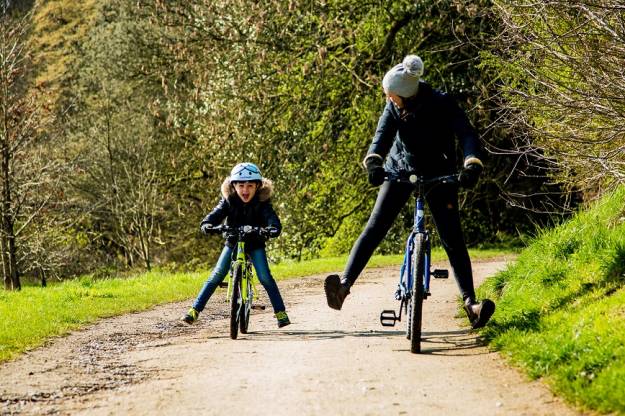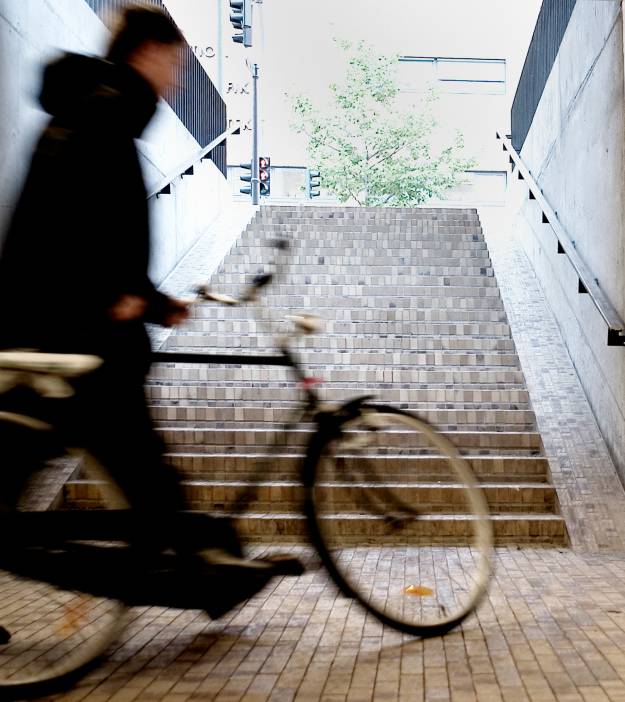Seven in ten cyclists (70%) do not believe that conditions have improved in the last five years, while two thirds (66%) are concerned about their safety when riding on Britain’s roads, according to our first State of Cycling report.
The State of Cycling report is the largest-ever analysis of its kind undertaken by the national governing body, and looks at the attitudes and experiences of 15,000 respondents who ride a bike across the country. The results follow data released by Sport England last month which showed that the number of adults cycling regularly for travel and leisure/sport both fell in the year leading up to November 2018.
Other key findings from the State of Cycling include:
- Almost nine in ten (87%) cyclists are ‘close passed’ at least once a week.
- The three most common hazards encountered by people on bikes are close passing (79%), unsafe road surfaces (68%) and vehicle speed (34%).
- Over three quarters (76%) of British Cycling members do not believe that cycling is taken seriously by their local authority, while 81% say the same of national government.
- Over three quarters of cyclists (77%) say their employer could do more to encourage people to cycle to work.

Responding to the findings, British Cycling Policy Adviser Chris Boardman said:
“Five years ago I appeared on breakfast television to talk about what would make people on bikes safer, and caused uproar on social media for having the cheek to wear my normal clothes, and not hi-vis and a helmet.
“Despite the evidence repeatedly telling us that it’s sustained investment in better infrastructure that keeps people safe, for 20 years society has continued to tell us that the answer lies in safety equipment. It speaks volumes that 96% of those surveyed do wear a helmet on the road, and yet today's report still reveals the shameful fact that the vast majority don’t feel safe.
“I sincerely hope that this will act as a wake-up call for us, to let evidence lead our decision-making and make bold decisions on funding and investment, rather than simply taking the easy option and telling people to look after themselves.”
Read the State of Cycling report

The report makes three key recommendations – based on these findings – to help individuals, businesses and policymakers drive a cultural shift in the future state of cycling in this country. These include a public mutual respect campaign for all road users, ring-fenced funding for cycling and walking in line with levels suggested by the Walking and Cycling Alliance, and the establishment of a national network of major employers by the Department for Transport to better understand how the Government can help small and large businesses to get more of their employees riding to work.
Mutual respect between road users emerged as a key theme of the State of Cycling responses. While 71% of respondents agreed that drivers are often hostile towards people on bikes, 72% also said that they often see people on bikes riding in a way which puts themselves in danger.
The impact of this hostility disproportionately impacts women and children, with more than two thirds (67%) of women saying they don’t feel safe when riding on the road, and over three quarters of parents stating they would not be happy to let their children cycle independently on the roads.

Boardman added:
“The idea of a turf war between motorists and people on bikes is divisive, unhelpful and only serves to fuel the problem we have on our roads. We know that 90% of our adult members are also drivers, and we are all at some point a pedestrian too.
“We all need to take responsibility for our own actions on the road – whether you’re a cyclist skipping through a red light or a motorist using your phone at the wheel – we need an enforceable commitment to punish people in a way that is proportionate to the danger they pose.”
This is the largest member survey of its type ever undertaken by British Cycling, and is published following last week’s announcement that it has now surpassed the 150,000th member milestone – rising from just 15,000 in the space of 20 years.
British Cycling Chief Executive, Julie Harrington, said:
“Both the growth in our membership and the response to this survey reflect the evolution of the role which cycling plays in Britain today.
“While we have achieved great things within the sport, our biggest battle lies ahead in the towns, cities and communities we are seeking to help transform, and the support of our members is absolutely vital in helping us to drive that forwards.”
Read the State of Cycling report
To find out more about the our Let’s Change the Way We Move campaign, click here.














